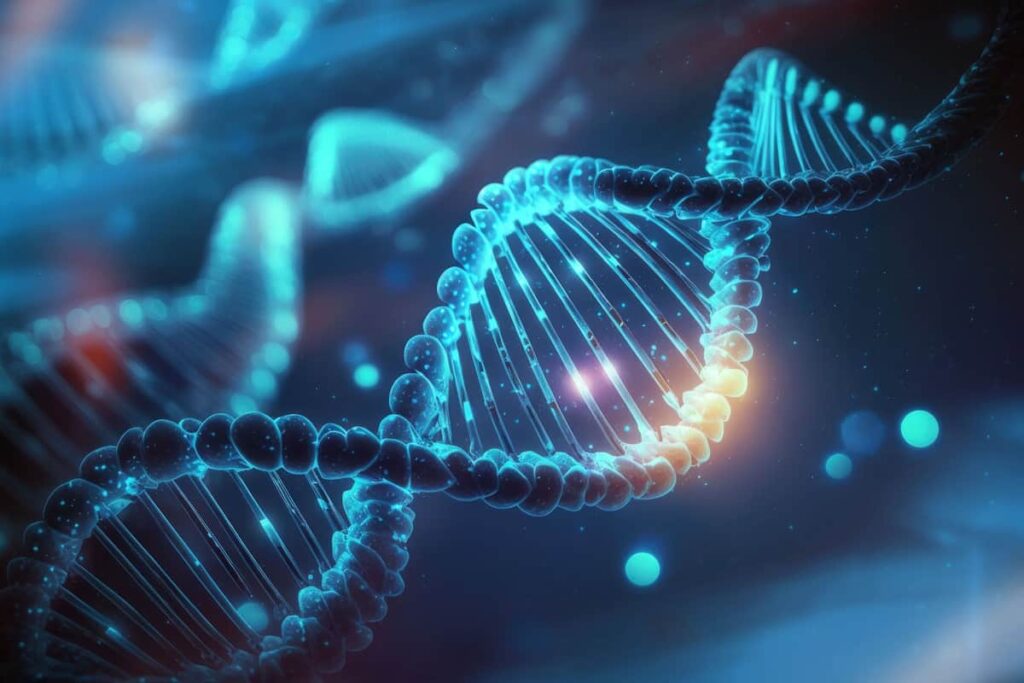Codex DNA Stock – A Desktop DNA Factory
Table of contents

We’re often asked why we write about companies that aren’t publicly traded. That’s because in the world of emerging technologies, the most exciting stuff is still in the process of emerging. When a company gets traction – what we define as meaningful revenue growth – they often decide to have an initial public offering (IPO). Revenues are an indication that a product or service has achieved “product-market fit.” In other words, whatever great thing they’ve built has people willing to pay for it, presumably at a price that’s economically viable in the long run.
Today, we’re going to write about a company we’ve talked about in the past that’s recently filed for an IPO. The story starts seven years ago with a startup called Synthetic Genomics.
The Story of Codex DNA
Once upon a time, there was an exciting startup called Synthetic Genomics. One of the company’s co-founders was Craig Venter, a man who created the first instance of synthetic life. Back in 2014, our piece titled Synthetic Life Created by Synthetic Genomics talked about how the company planned to do the old “algae makes fuel” thing which was the Holy Grail for many the shuttered synthetic biology startup:
In 2009, ExxonMobil announced that it would pay Synthetic Genomics up to $300 million to develop algae-based fuels, however, in May 2013 a revised agreement with Exxon was announced and speculations were made as to whether or not Synthetic Genomics was having to go back to the drawing board.
Credit: Nanalyze
The pedigree of Synthetic Genomics founders had us really excited, and a year later we wrote about the company’s three subsidiaries, one of which was a company called SGI-DNA. In March 2019, SGI-DNA separated from Synthetic Genomics to operate as a stand-alone entity, and last year they changed their name to Codex DNA. Today, they’re planning to raise $100 million in an IPO. With the background story out of the way, let’s dig into the Codex DNA S-1 filing to learn more about what the company does.
Codex DNA Today
Prior to investors entertaining any value proposition, it should be distilled in the simplest of terms. If you need a subject matter expert to explain a value proposition, the business is too complex to invest in. What Codex DNA has developed is a desktop machine that creates DNA – from the digital DNA code to an actual strand of DNA. The company was co-founded by Dan Gibson – the creator of the industry-standard Gibson Assembly methodology – who is currently the company’s Chief Technology Officer.
The Gibson Assembly method is fast, relative to standard enzyme-based cloning, and both more efficient and accurate. As a result, numerous synthetic biology workflows now take days and hours instead of weeks and months.

Next to software-as-a–service (SaaS), one of our favorite business models is “life sciences instruments used by thousands of customers across multiple industries with lots of high-margin consumables.” That’s what made Illumina the success story it is today. While Codex DNA claims to have built the first instrument of its kind, they’re certainly not without competition.
The notion of producing synthetic DNA isn’t something new. Last year, we published a piece titled DNA Script Develops World’s First Enzymatic DNA Printer in which Codex DNA was mentioned alongside a number of other companies working on instruments that allow researchers to create synthetic DNA in their own laboratories. From that article:
All DNA synthesis involves making short fragments of DNA called oligonucleotides (oligos), and then using enzymes to sew them together. Companies like Twist Bioscience have built an entire business around producing synthetic DNA on demand.
Credit: Nanalyze
Since we’re investors in Twist Bioscience (TWST), we’re very interested in learning about companies that are building machines which would let Twist’s customers do the work themselves. In looking at Twist’s latest 10-Q, it appears that selling synthetic DNA is falling as a percentage of total revenues with “NGS tools” constituting a majority of revenues as of last quarter:

Leaving that concern aside for now, let’s talk about what progress Codex DNA has made in selling their desktop machine that creates synthetic DNA.
A Desktop DNA Factory
Codex DNA claims to have built the world’s only fully automated gene synthesis platform, the BioXp system, which was made commercially available in September 2019. As of last month, Codex DNA had placed approximately 160 BioXp systems, 43 of those in 2020. The most recent flavor is the BioXp 3250 system which was launched in September 2020 and, by the end of May, had sold approximately 36 units. In total, Codex DNA has more than 300 customers including 15 of the 25 largest biopharmaceutical companies in the world. System placements in 2020 represented the following markets and customer segments:
- Areas of focus: 45% biologics, 27% vaccine development, 14% cell and gene therapy, 12% genome editing, and 2% agriculture.
- Research area: 37% immuno-oncology, 35% infectious disease, 18% genetic/rare disease, and 10% other.
- Application: 23% vaccines, 21% protein engineering, 20% cell engineering, 20% antibody engineering, and 16% nucleic acid engineering.
- Customer type: 43% biotechnology development, 23% academic institutions, 14% pharmaceutical development, 12% other, and 8% contract research.
As for revenues, they’re trickling in as one would expect from a platform that’s relatively new. Codex DNA brought in around $6.5 million in revenues for 2020 with a breakdown as follows: 57% BioXp systems, 19% BioXp kits, 16% biofoundry services, and 8% benchtop reagents.

One customer, New England Biolabs (NEB), accounted for 21% of their revenue for the year ended December 31, 2020, based on royalties paid under a confidential settlement agreement. (It’s probably safe to assume that the royalties segment is solely NEB going forward unless we’re told otherwise.) Regarding the remainder of revenues, Codex DNA says their top 20 customers account for about 60% of revenues.
To Buy or Not to Buy
It’s early days for Codex DNA. They’ve yet to breach the $10 million yearly revenue mark, a nice round number where things start to become “meaningful.” What’s more intriguing is how the synthetic DNA space is evolving. Twist Bioscience offers DNA synthesis as a service, and so does Codex DNA. The difference is that the latter offers an instrument which allows researchers to do the work themselves – if you consider pressing a button and waiting 24 hours work.
In a future article, we’ll take a look at all the players in the emerging field of DNA synthesis. There’s certainly room for more than one, but we’re selfishly interested to know what threats may be looming for Twist Biosciences, a company we’re presently holding in our own disruptive tech stock portfolio.
If you’re keen on the Codex DNA platform and want to put some money on red, wait until the dust settles following their IPO, then start dollar-cost-averaging your way into a position. We’ll be avoiding the company for now and will check back in a year to see what progress they’re making.
Conclusion
One thing to like about Codex DNA is how their markets and customer segments are well diversified (outside of NEB). Customers are currently kicking the tires, and should the platform perform as expected, it will be easy to start scaling with some quality reference clients. While the first green shoots of traction are starting to sprout, we think it’s worth waiting until this whole IPO thing is behind them before taking a serious look at the stock.
Should the Codex DNA IPO go through as planned, shares of Codex DNA will trade under the ticker DNAY.
Sign up to our newsletter to get more of our great research delivered straight to your inbox!
Nanalyze Weekly includes useful insights written by our team of underpaid MBAs, research on new disruptive technology stocks flying under the radar, and summaries of our recent research. Always 100% free.
















Codex DNA (DNAY) started trading on June 18th 2021 at $20. Current price is $17.13. Market cap: $500M.
Latest news: last week (July 21st 2021) Codex DNA signed a licensing and supply agreement with Maravai LifeSciences’ TriLink Biotechnologies division for the latter’s CleanCap technology. Codex DNA will integrate the mRNA capping technology into its suite of automated mRNA synthesis kits for the BioXp system as well the BioFoundry Services offering.
We’d need a lot more information to deduce anything of value from that.